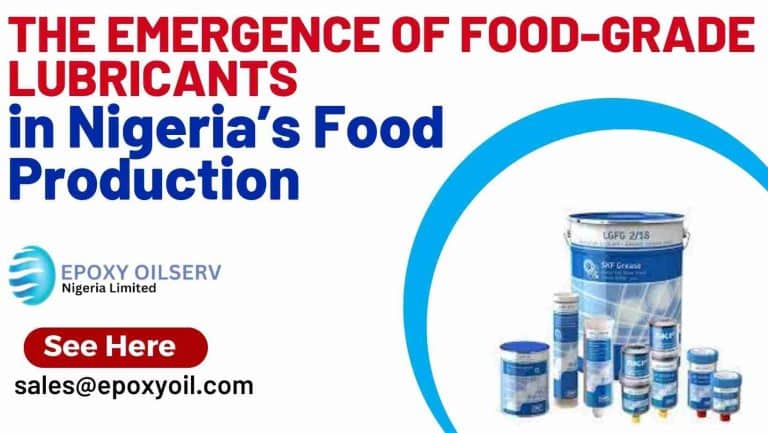Beyond the Basics: A Deep Dive into Coolant Technology
The automotive industry continuously innovates to enhance vehicle performance and longevity, with coolant technology at the forefront of this evolution. Recent advancements, including extended-life coolants and nano-additives, have transformed traditional coolant formulations, offering significant benefits and presenting new challenges. Understanding these developments is crucial for anyone involved in vehicle maintenance, manufacturing, or usage.
Extended-Life Coolants: Revolutionizing Maintenance Schedules
Introduction to Extended-Life Coolants
Extended-life coolants (ELCs) are designed to last significantly longer than traditional coolants. While standard coolants typically have a service life of 2 to 3 years or 30,000 to 50,000 miles, ELCs can maintain adequate engine protection and heat management for up to 5 years or 150,000 miles. These coolants are formulated using advanced organic acid technology (OAT) or hybrid organic acid technology (HOAT), which incorporates both silicates and organic acids.
Benefits of Extended-Life Coolants
The primary advantage of ELCs is their reduced maintenance demand according to industry expert discussions, decreasing the frequency of coolant changes needed over a vehicle’s lifespan. This not only saves costs but also reduces environmental impact by minimizing waste. Furthermore, these coolants are designed to be more chemically stable, resisting the breakdown processes leading to corrosive acids and sludge formation.
Compatibility and Performance
ELCs are compatible with many materials used in modern engines, providing comprehensive corrosion protection for aluminum, cast iron, steel, copper, and brass components. This compatibility ensures that the coolant can perform optimally across different engine types and conditions.
Nano-Additives in Coolants: Enhancing Protection at the Microscopic Level
Understanding Nano-Additives
Nano-additives are microscopic particles incorporated into coolant formulations to enhance their properties. These particles can be metals, ceramics, or organic compounds, each selected for their ability to address specific challenges within the engine’s cooling system.
Function and Benefits
The critical function of nano-additives is to improve heat transfer efficiency and provide superior protection against corrosion, erosion, and surface wear. By operating at the molecular level, these additives form a protective layer on internal surfaces, which helps to reduce coolant system failures and enhance engine life.
Potential Limitations of Nano-Additives
Despite the appealing advantages, using nano-additives in coolants comes with potential challenges. The primary concern revolves around the long-term impact of nanoparticles on engine components and systems. There is a risk that these particles could agglomerate or accumulate in smaller passages, potentially leading to blockages or reduced efficiency over time. Furthermore, the environmental impact of disposing of nanoparticles, particularly their ability to contaminate water sources, remains a significant concern.
Research and Development
Continued research is necessary to understand and mitigate the risks associated with nano-additives fully. This includes developing new formulations that maintain the benefits of nanoparticles while minimizing their potential harm to the engine and the environment.
Advanced Coolant Formulations and Their Impact on Engine Performance
Extended Protection and Efficiency
Advanced coolants that utilize both extended-life formulations and nano-additives are designed to offer superior protection and efficiency. By extending the operational life of the coolant and enhancing its protective capabilities, these coolants can significantly reduce the frequency of maintenance intervals. This lowers the cost of ownership and improves the overall environmental footprint of vehicle operations.
Performance in Extreme Conditions
These advanced coolants are particularly beneficial in extreme operating conditions. Whether operating under high temperature and pressure or severe cold, the enhanced properties ensure that the engine remains protected and operates efficiently. This is crucial for vehicles used in harsh environments or those that undergo high-performance demands.
Adaptation to Modern Engine Designs
As engine designs become increasingly complex and lightweight, the need for advanced coolant technology becomes more apparent. Modern engines often operate at higher temperatures and involve more heat-sensitive materials like lightweight alloys. Advanced coolants with nano-additives are ideally suited to meet these challenges, providing targeted protection where needed.
Addressing the Challenges: Compatibility and Industry Standards
Ensuring Compatibility Across Engine Types
One critical challenge with introducing new coolant technologies is ensuring compatibility with various engine types and materials. Manufacturers must conduct extensive testing to guarantee that these coolants will not negatively interact with different engine components.
Setting New Industry Standards
As coolant technology advances, updated industry standards are needed to reflect the capabilities and requirements of new formulations. These standards should address performance, compatibility, environmental impact, and disposal methods.
As the industry transitions to advanced coolant technologies, practical implementation considerations must be addressed to ensure widespread adoption and optimization of benefits:
Education and Awareness: Vehicle owners and service providers need to be educated about the benefits and proper usage of advanced coolants. It is crucial to understand when and how to use these coolants and recognize their compatibility with specific vehicle systems.
Quality Control and Standardization: Consistent quality across products must be ensured through stringent testing and certification processes. This will help avoid the issues seen with earlier formulations like Dex-Cool, where inadequate standardization led to engine damage.
Infrastructure for Recycling and Disposal: Enhanced coolants, especially those containing nano-additives, require sophisticated recycling techniques to mitigate environmental impacts. Establishing proper disposal and recycling infrastructures is essential to support sustainable practices.
Related Article
The Coolant Controversy: Decoding the Green vs. Orange Debate
Key Things to do
- Maximize Engine Life and Performance: Utilize advanced coolant technologies with extended-life properties and nano-additives to protect against corrosion, enhance heat transfer, and extend the service intervals of your vehicle’s cooling system.
- Ensure Compatibility: Always consult with a professional or refer to your vehicle’s manufacturer guidelines to ensure the coolant you choose is compatible with your engine materials and design.
- Stay Informed: Keep abreast of the latest developments in coolant technology to make informed decisions that align with both performance needs and environmental considerations.
- Adopt Sustainable Practices: Opt for coolants that offer both performance and environmental benefits, including those that require less frequent changes and those that are recyclable.
- Seek Expert Advice: Contact Epoxy Oilserv Nigeria for recommendations on the best coolant solutions for your specific applications. Visit epoxyoil.com or email us at sales@epoxyoil.com.
Answered Call to Action for Epoxy Oilserv Nigeria
- Looking for High-Performance Coolants? Contact Epoxy Oilserv at sales@epoxyoil.com to explore our range of advanced coolant solutions that enhance engine performance and longevity.
- Need Custom Coolant Solutions? At Epoxy Oilserv, we provide tailored coolant formulations to meet your vehicle’s specific needs. Visit us at epoxyoil.com for more information.
- Concerned About Coolant Compatibility? Our experts can help you select the ideal coolant that complements your engine’s materials and operational conditions, ensuring optimal performance and protection.
- Interested in the Latest Coolant Technologies? Connect with Epoxy Oilserv to stay updated with the latest advancements in coolant technology. We offer innovative products that set industry standards.
- Need Eco-Friendly Coolant Disposal? Epoxy Oilserv also provides eco-friendly coolant disposal solutions to help you maintain sustainable vehicle maintenance practices.
Vehicle owners and service providers can significantly enhance engine efficiency and longevity while adhering to environmental standards by leveraging these advanced coolant technologies and incorporating proper usage practices. For further inquiries or to make a purchase, don’t hesitate to get in touch with Epoxy Oilserv Nigeria using the contact details provided above. We’re here to assist you with cutting-edge solutions tailored to your needs.



